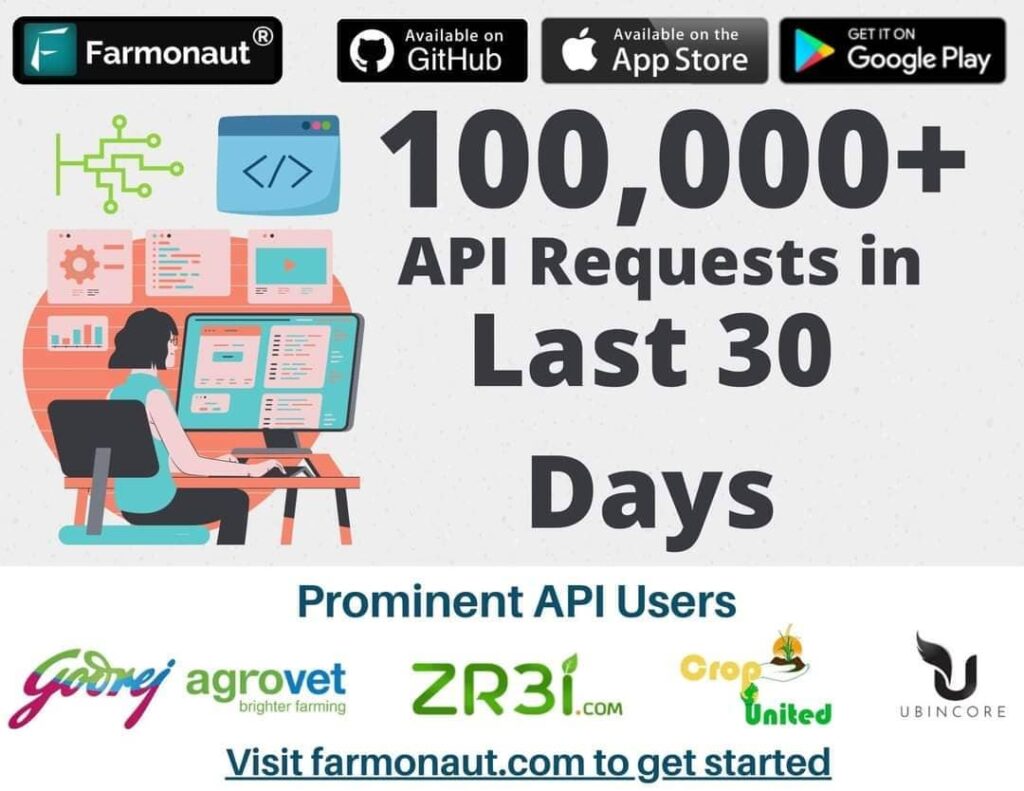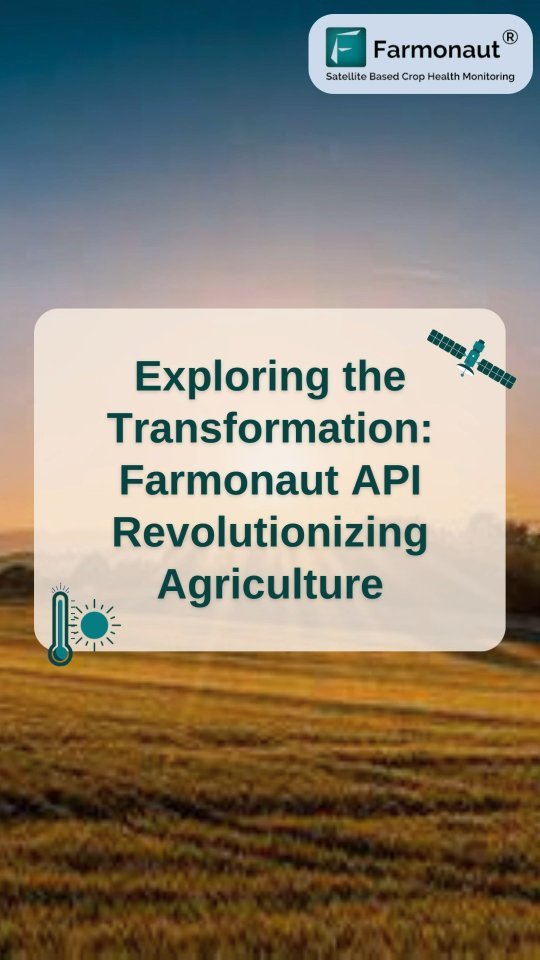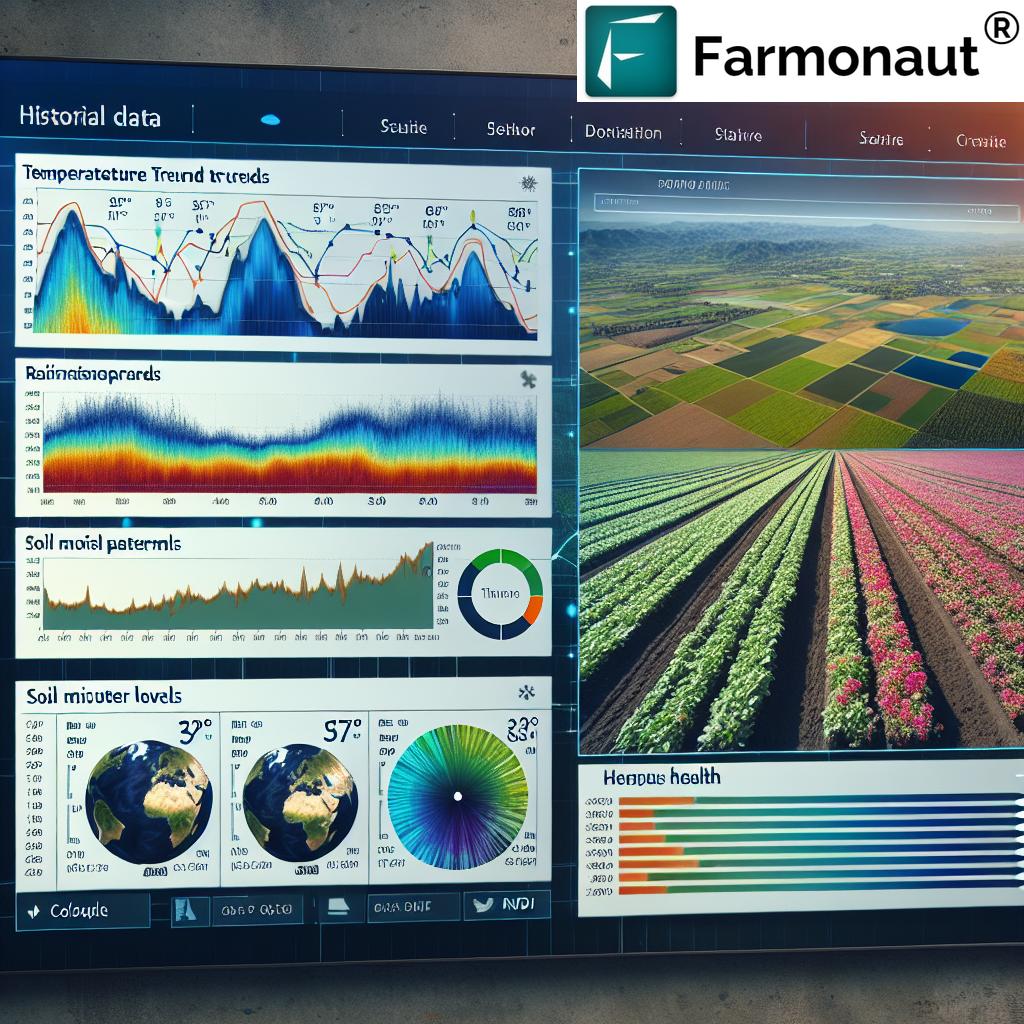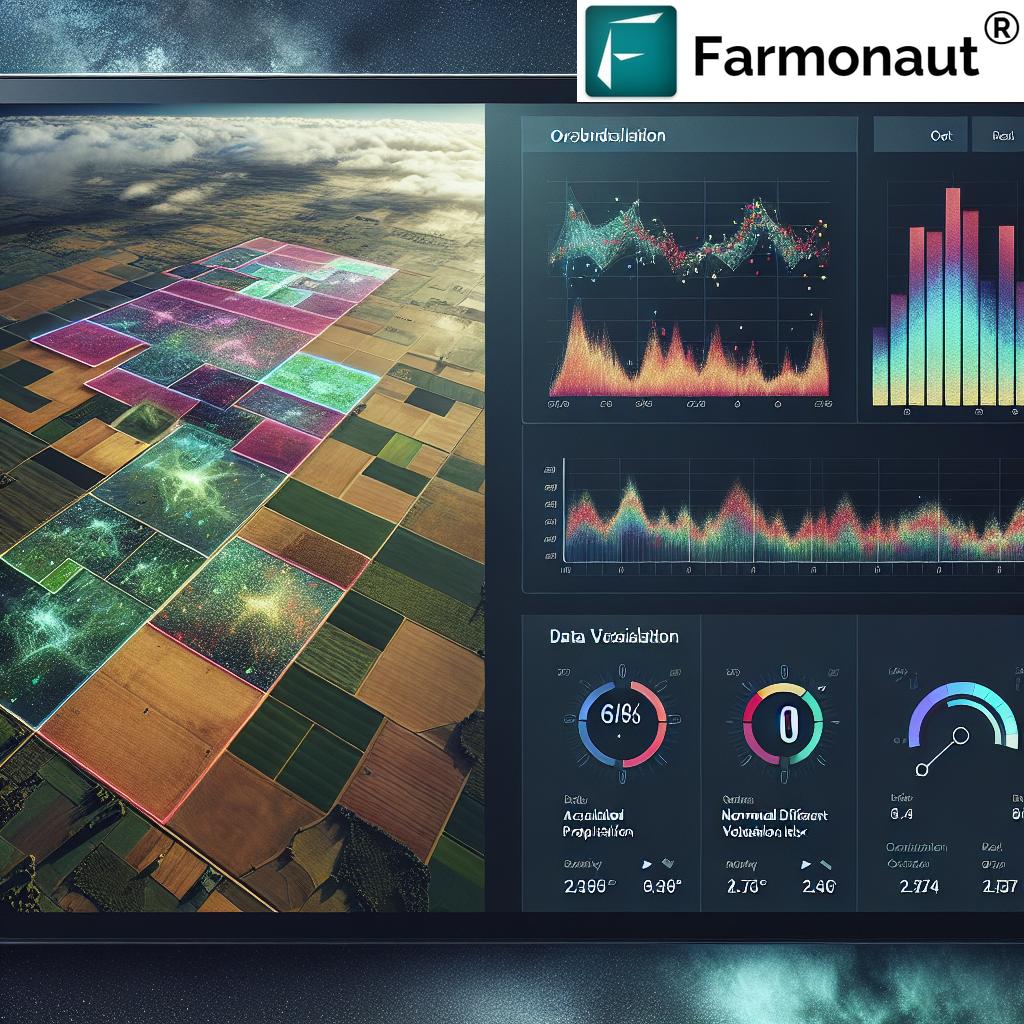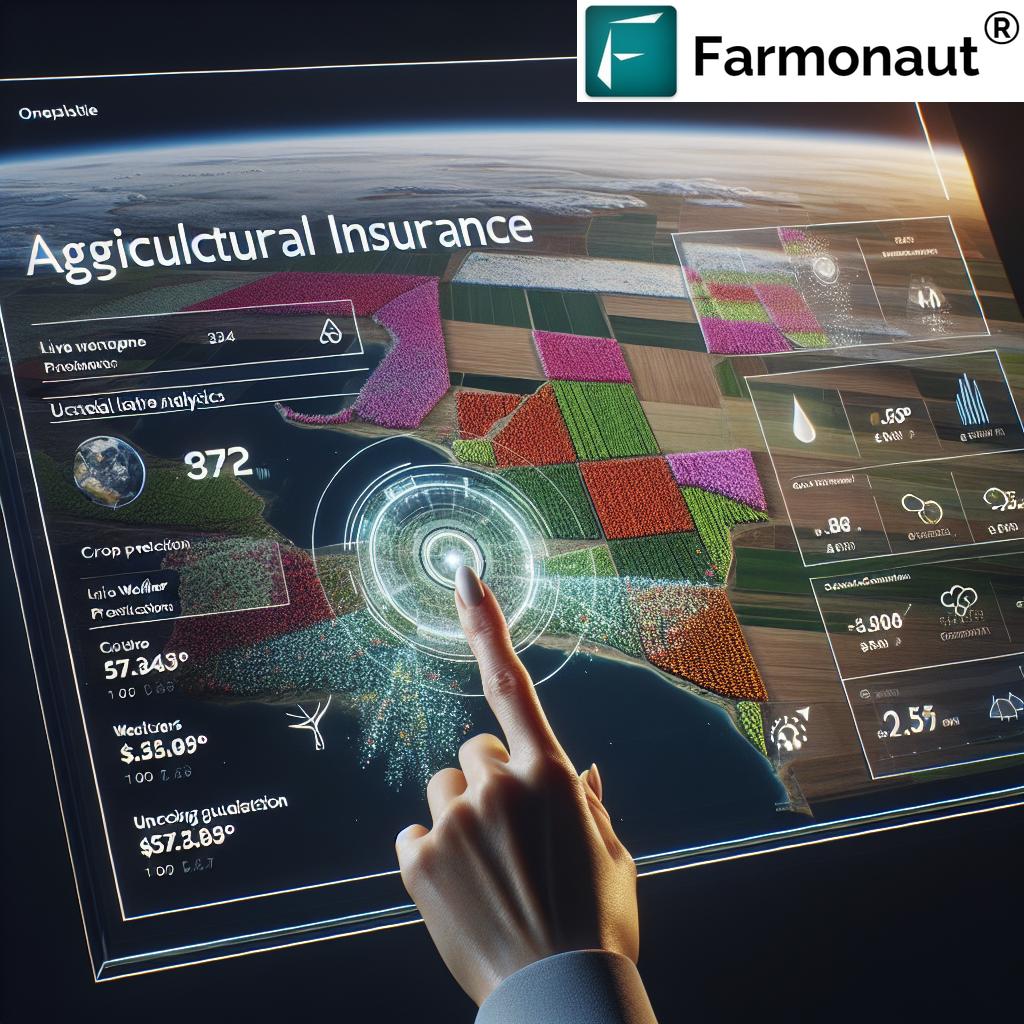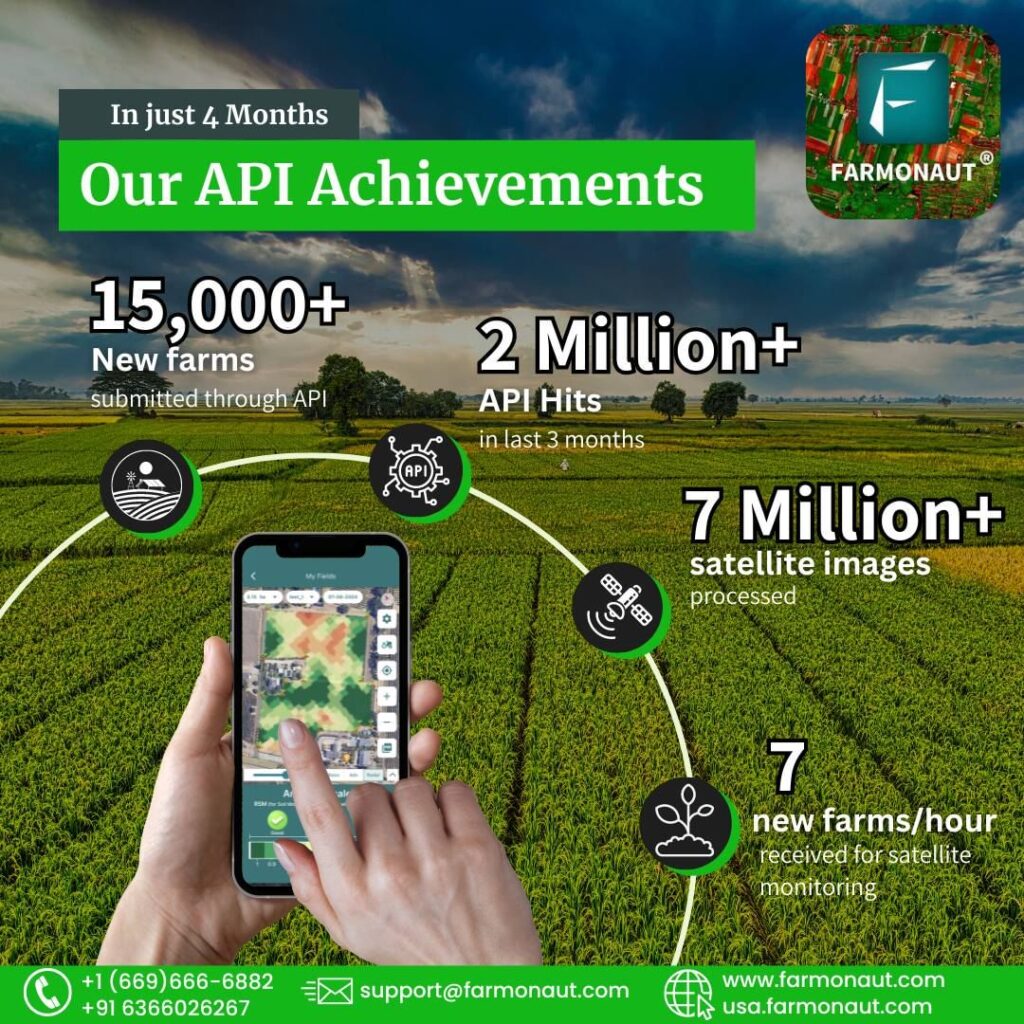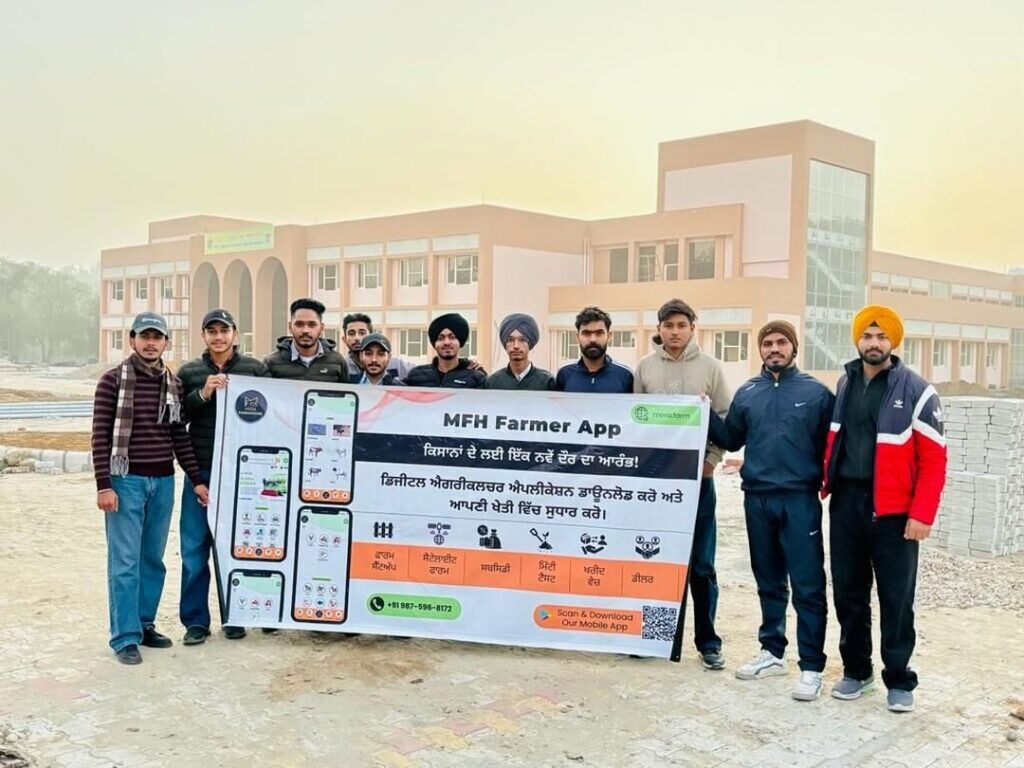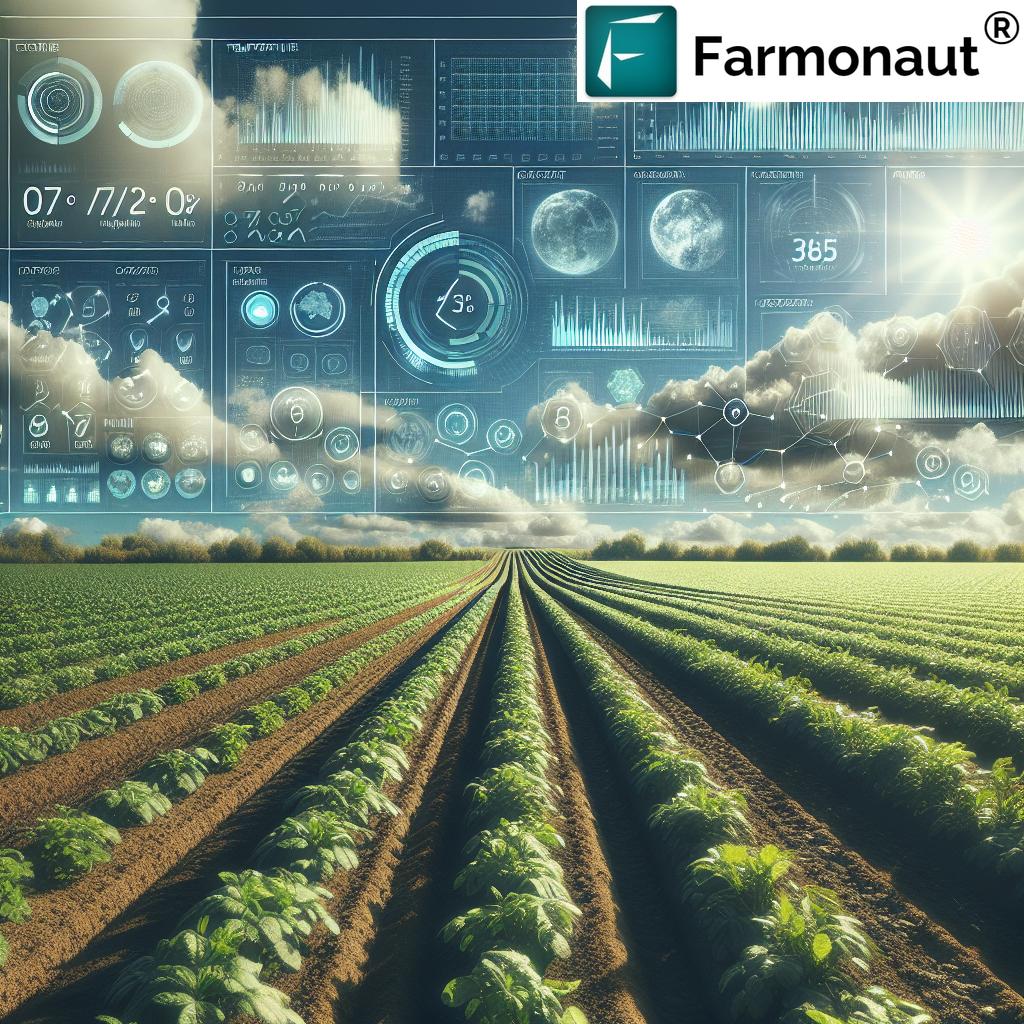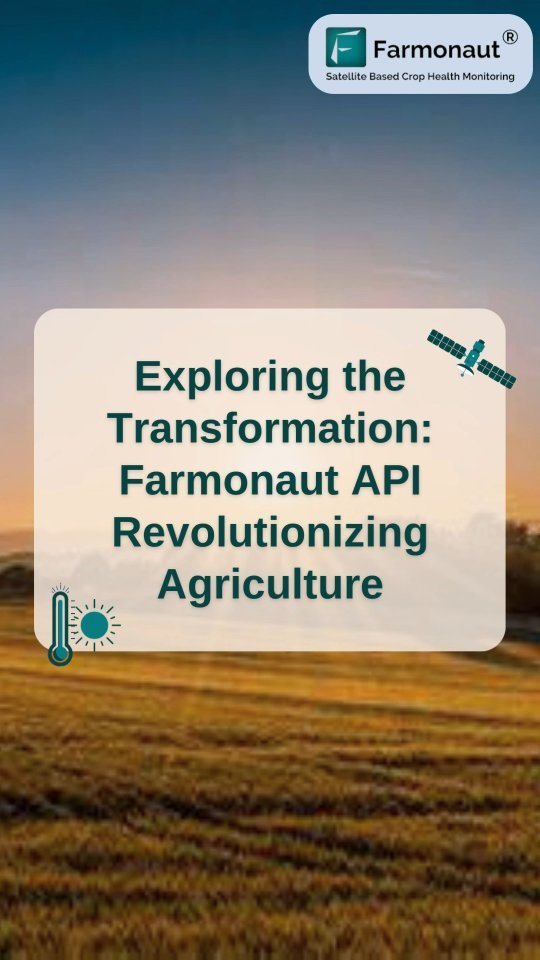API Management: 7 Ways to Boost Farm Data Integration
“Over 70% of leading agri-tech firms use APIs to integrate real-time farm data for precision agriculture solutions.”
Introduction
The rapid evolution of technology and precision agriculture has redefined the landscape of modern farming. In today’s world, data, and especially agricultural data integration, is a linchpin of efficient, sustainable, and productive farms. A central force behind this revolution is the Application Programming Interface—or API. By interconnecting disparate systems, APIs streamline data exchange, analysis, and farm management software, enabling us to make smarter, data-driven decisions while boosting supply chain transparency across agriculture.
In this comprehensive guide, we’ll explore the transformative power of API management—delving into seven concrete ways it streamlines farm data integration, powers precision agriculture technology, and brings traceability and transparency to supply chains. Alongside, we’ll highlight how solutions like Farmonaut harness APIs, offering real-time crop health monitoring, advanced analytics, and resource management—making cutting-edge technology affordable and accessible for farmers, agribusinesses, and stakeholders worldwide.
Understanding APIs in Agriculture
APIs (Application Programming Interfaces) comprise sets of protocols, routines, and tools for building software applications. Simply put, APIs allow different software systems—such as farming machinery, weather stations, or crop health monitors—to “talk” with each other, seamlessly exchanging and synchronizing data.
In the context of agriculture, APIs are transformative. They enable the integration of data across diverse sources: soil sensors, satellite imagery, farm machinery data, environmental sensors, and digital records. When these data streams are unified via robust API management, farmers, agribusinesses, and stakeholders gain real-time visibility and actionable insights into field conditions, crop health, weather risks, and resource use.
- Integrating farm data: APIs consolidate fragmented data (from field machinery, drones, satellites, and databases) into a shared platform.
- Reducing manual effort: Centralizing agricultural records cuts down on time-consuming data entry, reduces errors, and streamlines management.
- Enabling analytics: Unified APIs empower powerful analytics—unlocking precision agriculture technology and data-driven insights.
By making data fluid and accessible, APIs serve as the foundation for advanced farm management software, improving resource allocation, crop health monitoring solutions, and driving innovation through IoT in farm management and sustainable practices.
Why API Management Matters for Agricultural Data Integration
API management is more than just technical infrastructure—it’s the engine that powers secure, intelligent, and scalable agricultural data integration. With the complexity and scale of modern farming operations rising, the ability to:
- Connect different farm management systems
- Aggregate real-time data from diverse sources
- Maintain privacy and control over sensitive farm records
- Enable seamless collaboration with supply chain partners
…is what sets successful, adaptable farms apart. Effective API management streamlines the data integration process, ensuring vital business and field information is always timely, reliable, and actionable—empowering farmers to respond rapidly to weather, market, or environmental changes.
Furthermore, streamlined API management accelerates the adoption of resource management tools, blockchain-driven traceability, and satellite imagery for farming, opening the door to both sustainability and profitability in agriculture.
“API-driven data integration can reduce farm management time by up to 40%, streamlining supply chain transparency.”
7 Ways API Management Boosts Farm Data Integration
1. Automated Data Synchronization
Automated data synchronization is at the heart of farm data integration. Through APIs in agriculture, different software platforms and devices continuously exchange and update data in real time. This includes:
- Satellite imagery for farming—updated regularly for crop health evaluation.
- Weather station feeds, providing up-to-the-minute risk analysis.
- Soil sensors and moisture monitoring, ensuring irrigation efficiency.
- IoT-based machinery logs for resource and equipment tracking.
By eliminating silos and manual data entry, automated synchronization means farmers and agribusinesses get instant access to critical information, speeding up everything from irrigation to harvesting and resource management.
For example, Farmonaut’s API enables seamless data flow into farm management software, allowing managers to monitor multiple fields, update crop health records, and make timely interventions based on real-time data (API details here).
2. Standardized Data Protocols
Standardization is the backbone of interoperability in agriculture data analytics and integration. APIs facilitate a unified approach to data formatting, ensuring compatibility between:
- Soil testing devices and analytics software
- Crop health monitoring solutions and FMS platforms
- Financial tools and resource logs
Standardized protocols (such as REST or JSON) allow farm management systems to receive, process, and analyze data from new sources without costly customizations. This expedites system integration and provides a scalable framework as more advanced technologies, like AI and blockchain, enter the agriculture domain.
Developers and technology providers benefit from shared protocols—making it easier to innovate and implement emerging precision agriculture technology.
Explore more about integrating standards-based APIs for multi-source large-scale farm management.
3. Scalable API Architecture
A scalable API architecture is essential for farms and agribusinesses seeking expansion or diversification. As farm sizes grow or new fields are added, APIs enable seamless onboarding of additional sensors, machinery, and analytics modules—without re-architecting underlying systems.
- Integrate hundreds or thousands of IoT devices for field-level monitoring
- Add new satellite-driven analytics as they become available
- Link with new supply chain partners, logistics systems, or certification databases
Flexible API management supports the future-readiness of farming operations, ensuring that innovation—driven by AI, satellite imagery, resource analytics, and beyond—is always within reach and cost-effective.
For instance, Farmonaut’s Android and iOS apps and robust API enable farmers, agribusinesses, and researchers to scale up monitoring and management across vast agricultural landscapes. Access the Farmonaut platform to experience scalable, satellite-based integration.
4. Robust Security Protocols: Protecting Sensitive Agricultural Data
As data becomes the currency of modern farm operations, security and privacy are non-negotiable. APIs in agriculture deploy robust authentication, encryption, and permission management to ensure:
- Only authorized personnel and systems access sensitive farm data
- Data ownership remains with the farmer, ensuring control over sharing and access
- Confidentiality for financial, compliance, and yield records
Modern API management provides fine-grained access controls based on user roles or partners. For instance, financial institutions may require access to satellite-verified crop health records for insurance, while agronomists may focus on specific field diagnostics—all without exposing unnecessary information.
Farmonaut places security at the forefront. Through its API, users can confidently share necessary information with partners, lenders, or certification bodies—empowering connectivity without compromising safety.
Enhance your resource and fleet management processes securely with Farmonaut’s Fleet Management module, designed for streamlined, secure logistics and equipment operations.
5. Real-Time Farm Data Monitoring and Alerts
One of the greatest advantages of API-driven systems is real-time monitoring. Through the integration of IoT in farm management, APIs provide live feeds on:
- Crop health indicators from multispectral satellite images
- Weather analytics for risk and planning
- Soil moisture and irrigation logs for water conservation
- Pest activity and disease conditions for timely intervention
Automated alerts can be triggered by data anomalies (e.g., sudden drop in NDVI or temperature spikes), ensuring resource allocation and intervention happens instantly—not days after an issue emerges.
Farmonaut’s AI-powered advisory leverages real-time data via API, providing farmers with custom alerts and guidance to maximize yield and sustainability. Through the web, Android, or iOS platforms, users gain on-the-go insights that can be acted upon immediately.
Unlock automated crop monitoring solutions and actionable notifications by exploring the carbon footprinting feature, which gives real-time feedback on sustainability metrics.
6. Streamlined Supply Chain Interfaces for Traceability and Transparency
Supply chains in agriculture are more complex than ever, with multiple stakeholders—from seed producers and farmers to retailers and consumers. APIs enable transparent, real-time data flow across the chain, covering:
- Product traceability: From field to final product, every process is logged and verified.
- Quality control: Primary data (e.g., input usage, harvest date, irrigation) is accessible to relevant partners.
- Certification and compliance: Standards-based records are available for audit or buyer requirements.
Blockchain-powered traceability solutions amplify the confidence APIs deliver—ensuring that origin data, integrity, and environmental impact are impossible to falsify.
Farmonaut’s traceability platform uses blockchain-backed, API-driven monitoring, allowing stakeholders and consumers to verify every stage of an agricultural product’s life, right from soil to shelf. This not only streamlines audits and compliance but also bolsters consumer trust.
7. Advanced Integration: Data Analytics, AI, and IoT in Farm Management
In the era of precision agriculture technology, value comes from not just collecting data—but transforming it into actionable insights. API management empowers advanced data analytics, machine learning, and AI-based advisory by:
- Aggregating multisource data for holistic analysis
- Delivering predictive insights (e.g., yield forecasting, pest risk models)
- Automating resource optimization (variable irrigation, fertilization, spraying)
- Integrating large volumes of IoT (sensors, actuators, drones) data with analytics engines
Farmonaut’s API documentation and platforms offer seamless connections for developers seeking to build advanced crop, soil, and environmental analytics, unlocking powerful decision support for all users.
Feature-Benefit Table: 7 API Management Strategies for Farm Data Integration
| API Management Method | Core Feature | Estimated Integration Speed Improvement (%) | Estimated Supply Chain Transparency Gain (%) |
|---|---|---|---|
| Automated Data Synchronization | Real-time, bi-directional syncing of multi-source agricultural data. | +35% | +20% |
| Standardized Data Protocols | Universal APIs and formats (REST, JSON, XML) for easy platform compatibility. | +30% | +22% |
| Scalable Architecture | Flexible scaling for more devices, fields, or partners as needed. | +25% | +18% |
| Robust Security Protocols | Advanced authentication and permission controls protect sensitive data. | +18% | +22% |
| Real-Time Monitoring & Alerts | Live crop, environmental, and resource notifications. | +33% | +24% |
| Supply Chain Interfaces | End-to-end product traceability and stakeholder collaboration. | +22% | +35% |
| Advanced Analytics & IoT Integration | Actionable AI models and big data processing for decision support. | +40% | +28% |
How Farmonaut Powers API-Driven Agricultural Data Integration
At Farmonaut, our mission is to democratize precision agriculture technology—putting data-driven insights, satellite monitoring, and advanced analytics into the hands of farmers, agribusinesses, and institutions at every scale. What sets us apart?
- Satellite-Based Crop Health Monitoring: Farmonaut’s platform uses multi-temporal, multispectral satellite imagery to track vegetation health (NDVI, EVI, SAVI), soil moisture, and even microclimate risks. Through our API and apps, farmers can access field conditions anytime, reducing guesswork and supporting timed interventions.
- AI-Powered Advisory System: Our Jeevn AI provides real-time recommendations, weather analytics, and pest management insights, tailored for continuous crop monitoring solutions.
- Blockchain-Backed Traceability: Using APIs and blockchain technology, we ensure agricultural traceability systems so supply chain transparency agriculture is maintained—from field operations to consumer trust.
- Fleet & Resource Management: Our platform supports connected resource, vehicle, and equipment tracking, helping optimize farm logistics at scale.
- Carbon Footprinting & Sustainability: Farmonaut enables real-time carbon monitoring, empowering stakeholders to track and minimize environmental impact.
Through scalable APIs, these features are available via Android, iOS, web, and direct API integration, making agricultural data integration seamless—whether you’re an individual grower, a large agribusiness, or an institutional stakeholder.
Looking to streamline your organization’s loan or insurance workflow? Visit Farmonaut’s crop loan and insurance verification solution to see how satellite imagery and secure APIs cut fraud and ease compliance.
Challenges and Considerations in Agricultural API Integration
While the advantages are immense, proper API management requires us to address several crucial challenges:
- Data Standardization & Interoperability: Not all farm devices, platforms, or software solutions use the same data formats or granularities. Creating common protocols and promoting industry standards is essential for seamless farm management software integration.
- Security & Access Control: As farm data includes sensitive yield, input, and environmental data, robust authentication, strong encryption, and user-level access are necessary to protect privacy and maintain ownership rights.
- Scalability: Farms and agribusinesses need APIs that can scale from a few fields to thousands, handling seasonal loads and integrating new sources (weather, IoT, machinery) as needed.
- Change Management: Training, change management, and support are key as staff and stakeholders adapt to API-driven data workflows.
At Farmonaut, we address these challenges with developer-friendly documentation, scalable architecture, and security by design. Explore our API developer docs for integration details.
The Future of APIs in Agriculture: Trends and Innovations
The future of API management in agriculture is dynamic and rapidly evolving. What’s ahead?
- Deeper Analytics & Predictive AI: APIs will be the gateway to even more advanced analytics, fusing historical and real-time data for yield forecasting, pest/disease prediction, and climate risk modeling—automating and personalizing decision support.
- Enhanced IoT Ecosystem: With a surge in on-field IoT devices—soil, weather, environmental, and operational sensors—APIs will empower the processing of billions of data points, making real-time, hyperlocal insights standard in precision agriculture technology.
- Blockchain for Unmatched Traceability: API-driven blockchain recording will deliver irrefutable agricultural traceability, giving every product—from cotton bales to organic produce—a transparent, tamper-proof origin and journey.
- Regulatory Compliance: Open APIs and standardized protocols will streamline compliance reporting for sustainability, environmental protection, and food safety—benefiting not just producers, but society and the planet.
The trajectory is clear: as agricultural data grows in volume and importance, API-driven platforms will be central to sustainability, profitability, and innovation in global farming.
Accelerate your sustainability journey today by checking Farmonaut’s carbon footprint tracking tools.
Ready to access all of these benefits from a single platform? Sign up for Farmonaut’s web and mobile applications and experience seamless integration, powerful data analytics, and rapid scalability wherever you farm.
Farmonaut Subscription Plans
Unlock the full power of satellite-driven, API-enabled farm management with Farmonaut’s scalable, cost-effective subscription packages. Designed to fit the needs of individual farmers, cooperatives, agribusinesses, and institutions, you can monitor fields, receive intelligent alerts, and achieve sustainable growth no matter your scale.
Frequently Asked Questions (FAQs)
1. What is API management in agriculture, and why is it important?
API management involves overseeing APIs to ensure secure, reliable, and efficient integration between various agriculture data systems—such as satellite imagery, field sensors, and management platforms. Effective API management is vital for real-time farm data integration, supporting automation, precision agriculture, transparent supply chains, and secure data sharing.
2. How does API-driven data integration improve farm operations?
APIs automate data collection and flow between devices and systems, drastically reducing manual entry, streamlining operations, enabling real-time monitoring, improving decision-making, and opening new avenues for resource management and analytics.
3. What makes Farmonaut’s API solutions unique?
Farmonaut distinguishes itself by offering affordable, scalable, and satellite-powered data integration. Its APIs provide real-time field monitoring, AI-driven advice, blockchain-based traceability, and carbon footprint tracking, all accessible via web, Android, iOS, and direct API integration.
4. Can I protect my farm’s sensitive data while using API integrations?
Absolutely. Well-designed APIs, such as those from Farmonaut, use strong authentication, encryption, and permission controls, ensuring only the right people access the data they need. Farmers retain ownership and control over all information shared.
5. Will integrating APIs require technical expertise?
While technical setup is often needed, platforms like Farmonaut provide detailed documentation and user-friendly dashboards to minimize complexity. Many integrations can be achieved with simple API keys or no-code connectors.
6. Does Farmonaut support large-scale, multi-location farm operations?
Yes, Farmonaut’s scalable platform and flexible subscriptions are designed for individual farm plots, as well as large-scale and multi-site agribusinesses, cooperatives, and institutional field management.
7. How does API-driven supply chain transparency benefit producers and consumers?
It allows producers to showcase verified product origins and farming practices, increasing brand trust. For consumers, it guarantees access to quality, safety, and sustainability data—empowering informed choices and building confidence in agricultural products.
Conclusion
The rise of API management in agriculture marks a paradigm shift. It bridges once-disconnected data sources and systems, ushering in an era of efficient farm data integration, real-time decision support, secure collaboration, and transparent supply chains. Through best practices—such as those outlined here, and embodied by platforms like Farmonaut—our community can harness technology to grow smarter, more sustainable, and more resilient farms.
By adopting API-driven solutions for satellite imagery, resource tracking, AI advice, and blockchain-backed traceability, we future-proof our agricultural operations—unlocking productivity, sustainability, and lasting profitability for generations to come.








